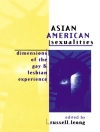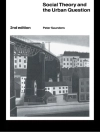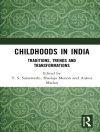Deviance: Social Constructions and Blurred Boundaries is designed for courses on social deviance that take a strong sociological perspective. The book draws on up-to-date scholarship across a wide spectrum of deviance categories, providing a symbolic interactionist analysis of the deviance process. The book addresses positivistic theories of deviant behavior within a description of the deviance process that encompasses the work of deviance claims-makers, rule-breakers, and social control agents. Students are introduced to the sociology of deviance and learn to analyze several kinds of criminal deviance that involve unwilling victims-such as murder, rape, street-level property crime, and white-collar crime. Students also learn to examine several categories of ‘lifestyle’ and ‘status’ deviance and develop skills for critical analysis of criminal justice and social policies. Overall, students gain an understanding of the sociology of deviance through cross-cultural comparisons, historical overview of deviance in the U.S., and up-close analysis of the lived experience of those who are labeled deviant as well as responses to them in the U.S. today
สารบัญ
Section 1: Theories and Methods in Deviance Studies
Chapter 1: Views of Deviance
Chapter 2: Getting Close to Deviance
Chapter 3: Positivistic Theories of Deviant Behavior
Chapter 4: Symbolic Interactionist/Social Constructionist Perspective
Section 2: High Consensus Criminal Deviance
Chapter 5: Murder
Chapter 6: Rape
Chapter 7: Financially Motivated Crime in the Streets
Chapter 8: White-Collar Crime
Section 3: Lifestyle Deviance
Chapter 9: Alcohol Abuse
Chapter 10: Drug Abuse
Chapter 11: Sex Work
Section 4: Status Deviance
Chapter 12: Mental Illness
Chapter 13: Obesity and Eating Disorders
Chapter 14: LGBTQ Identities












